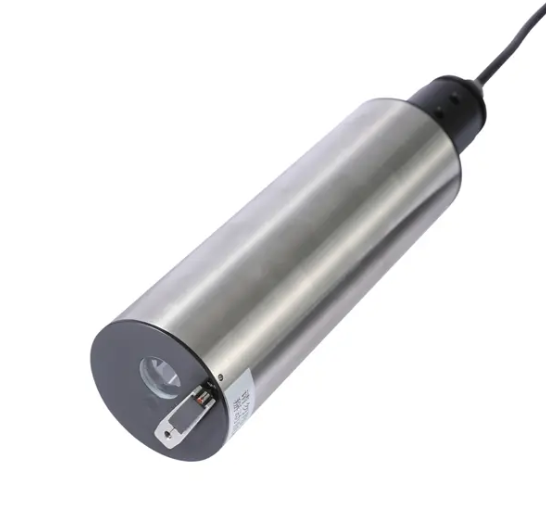Total suspended solids (TSS) sensors play a crucial role in measuring the concentration of suspended solids in liquids. These sensors are widely used in various applications, including environmental monitoring, water quality assessment, wastewater treatment plants, and industrial processes.
However, there are certain situations where TSS sensors may require frequent replacement. In this blog post, we will explore some of the scenarios where TSS sensors need to be replaced more frequently and discuss the importance of these sensors in different industries.
Harsh Industrial Environments: The Impact of Harsh Industrial Environments on TSS Sensors
Introduction to Harsh Industrial Environments:
Harsh industrial environments, such as chemical plants, manufacturing facilities, and mining operations, often expose TSS sensors to extreme conditions. These conditions can include high temperatures, corrosive chemicals, abrasive materials, and high-pressure environments.
Corrosion and Erosion Effects on TSS Sensors:
In such environments, TSS sensors are more prone to corrosion and erosion due to the presence of corrosive substances and abrasive particles in the liquid. These factors can cause physical damage to the sensors and affect their accuracy over time, necessitating frequent replacements.
Regular Maintenance and Replacement:
To mitigate the impact of harsh industrial environments on TSS sensors, regular maintenance, and inspection are essential. Periodic sensor cleaning, protective coatings, and proactive replacement strategies can help ensure accurate and reliable measurements.
High-Turbidity Water Bodies: The Challenges of Measuring TSS in High-Turbidity Water Bodies
Understanding High-Turbidity Water Bodies:
High-turbidity water bodies, such as rivers, lakes, and coastal areas, often have elevated levels of suspended solids. These solids can originate from natural sources, such as sediment, or from human activities, such as construction or agricultural runoff.
Impact on TSS Sensors:
The high concentration of suspended solids in these water bodies poses challenges for TSS sensors. The excessive amount of particles can cause clogging and fouling of the sensors, leading to inaccurate readings and reduced sensor lifespan.
Regular Calibration and Replacement:
To address these challenges, TSS sensors in high-turbidity water bodies require regular calibration and maintenance. Additionally, due to the accelerated wear and tear caused by the continuous exposure to high solids concentrations, replacement of TSS sensors at shorter intervals may be necessary to maintain accurate measurements.
Wastewater Treatment Plants: TSS Sensor Considerations in Wastewater Treatment Plants
TSS Monitoring in Wastewater Treatment:
Wastewater treatment plants rely on TSS sensors to monitor the effectiveness of their treatment processes. These sensors provide valuable data for optimizing treatment efficiency, assessing compliance with regulatory standards, and ensuring the quality of effluent released into the environment.
Challenges in Wastewater Treatment Plants:
TSS sensors in wastewater treatment plants face challenges such as the presence of coarse solids, organic matter, and chemicals that can cause sensor fouling and degradation. Additionally, the continuous operation of these plants and the demanding nature of the wastewater require robust and reliable sensors.
Environmental Monitoring: TSS Sensors for Environmental Monitoring Applications
Importance of Environmental Monitoring:
Environmental monitoring plays a vital role in assessing the quality and health of natural ecosystems, such as rivers, lakes, and oceans. TSS sensors are valuable tools for monitoring changes in water clarity, evaluating the impact of pollution, and identifying areas requiring remedial actions.
Challenges in Environmental Monitoring:
Environmental monitoring often involves deploying TSS sensors in remote locations with limited access and extreme environmental conditions. Harsh weather, biological growth, and physical disturbances can affect the sensors’ performance and require frequent maintenance or replacement.
Long-Term Monitoring and Sensor Lifespan:
Long-term environmental monitoring projects may require extended sensor deployment periods. In such cases, it is essential to consider the expected sensor lifespan and plan for regular maintenance and replacements to ensure data integrity and reliable measurements.
Durable And Reliable TSS Measurement Solution: Choose BOQU As Your Supplier
BOQU is a professional manufacturer of electrochemical instruments and electrodes integrating R&D, production, and sales. It can provide customers with reliable and durable TSS sensors and professional guidance solutions.
At BOQU, you can choose the right TSS Sensors and Industrial Grade Total Suspended Solids (TSS) Meter for your project. Here are two reliable testing instruments for you:
A. IoT Digital TSS Sensor ZDYG-2087-01QX: Continuous and Accurate Detection
BOQU offers the IoT Digital TSS Sensor ZDYG-2087-01QX, which is designed to provide continuous and accurate detection of suspended solids and sludge concentration. This sensor utilizes the infrared absorption scattered light method, combined with the ISO7027 method, ensuring reliable measurements even in challenging environments.
a. Features for Reliable Performance
The ZDYG-2087-01QX sensor is equipped with a self-cleaning function, ensuring the stability of data and reliable performance. It also includes a built-in self-diagnosis function to enhance operational reliability. The installation and calibration process of this digitally suspended solid sensor is simple, allowing for efficient and hassle-free operation.
b. Robust Construction for Longevity
The main body of the sensor is available in two options: SUS316L for ordinary applications and titanium alloy for seawater environments. The upper and lower cover are made of PVC, providing durability and protection. The sensor is designed to withstand pressure up to 0.4Mpa and flow velocities up to 2.5m/s (8.2ft/s), making it suitable for various operational conditions.
B. Industrial-grade Total Suspended Solids (TSS) Meter TBG-2087S: Accurate and Versatile
BOQU’s TBG-2087S Industrial-grade TSS Meter offers accurate measurements in a wide range of TSS concentrations, from 0 to 1000 mg/L, 0 to 99999 mg/L, and 99.99 to 120.0 g/L. With an accuracy of ±2%, this meter provides reliable and precise data for water quality assessment.
a. Durable Construction for Challenging Environments
The TBG-2087S TSS Meter is constructed with high-quality ABS material, ensuring durability and long-term performance. It has an operating temperature range of 0 to 100℃ and a waterproof rate of IP65, making it suitable for demanding industrial environments.
b. Warranty and Customer Support
BOQU stands behind the quality and performance of its products. The TBG-2087S TSS Meter comes with a 1-year warranty, providing peace of mind for customers. In addition, BOQU offers comprehensive customer support to address any inquiries or concerns.
Final words:
TSS sensors are essential instruments for measuring the concentration of suspended solids in liquids. However, certain environments and applications can lead to more frequent replacement of these sensors.
By understanding these challenges and implementing proactive maintenance and replacement strategies, industries and organizations can ensure accurate and reliable TSS measurements, supporting environmental sustainability and regulatory compliance.
Post time: Jun-23-2023





